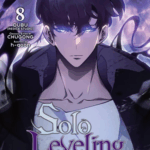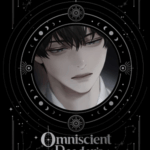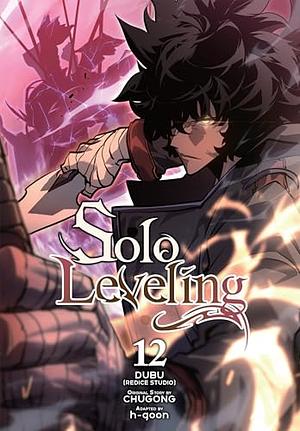Okay, hold onto your hats! This one’s a big ‘un, again already — I’ve had a very bookish week!
Books acquired this week
Last weekend I had my annual vision test and OCT scan, after which I always go to the bookshop. To, you know, prove my eyes still work. Look, I swear it makes sense. So I got myself a whole bunch of books, after saying I was only going to look at the non-fiction, because there were a couple of discounts and I had collected 10+ stamps to get money off as well.
Without further ado, let’s start with the manga, manhwa and manhua I’ve got this week (that’s Japanese, Korean and Chinese comics, respectively!).






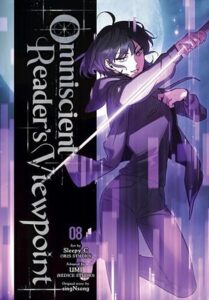

I read the Grandmaster of Demonic Cultivation light novels recently, so it’ll be fun to explore the world more visually in the manhua. There’s a lot more in the series, so I don’t know if I’ll get the rest soon or not — I guess it depends on how much I like it as an adaptation, and maybe whether I can spend my Bookshop.org credit on it. Then there’s the first volume of the Heaven Official’s Blessing manhua, which I’ve read online but wanted to own. I hope they’ll bring more of the series out soon.
Finally, the next volume of the Omniscient Reader’s Viewpoint manhwa that I didn’t have yet, since I’ve been going through those apace lately, and the new volume of The Other World’s Books Depend on the Bean Counter, since volume six of the manga just released. These should keep me busy a bit! I do get a lot of manga/comics via Comics Plus/Library Pass, but they don’t seem to partner with these publishers, and anyway I’d probably want copies for my collection, so I couldn’t resist the urge to stock up.
Buuut that’s not all. I also got a few other books, a mix of fiction and non-fiction:
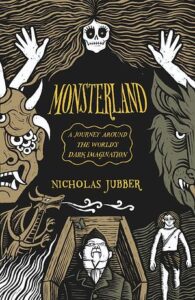

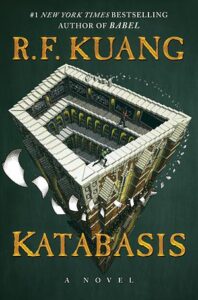
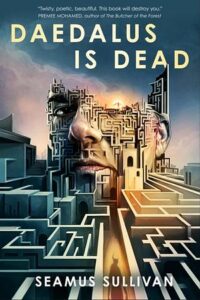

I’d been thinking about requesting Daedalus is Dead, Katabasis and Fate’s Bane as ARCs, so picking those up was an easy choice (especially with Katabasis heavily marked down!). Monsterland and A History of England in 25 Poems were more random choices, but I also love “the history of X in Y objects”-type non-fiction, so I’m very much looking forward to that one.
Since we’re on the topic of poetry, I did get a couple of books from the National Poetry Library this week, as I wrote about yesterday. They’re both debut collections, as I understand it, with one of them being native British and the other Ukrainian. I’m very curious about both, and might spend some time digging in this weekend.


This one’s also from the library, but my local one this time. I’ve seen mixed reviews for this but wanted to give it a shot anyway because the idea amused me:

Finally — yes, just a little more — I got a couple more review copies as well, this time via Netgalley. I’d requested them thanks to seeing people enthuse about them in Top Ten Tuesday posts last week, and was a little surprised to actually get them!


Stay for a Spell sounds like a fun cosy concept, while Princeweaver has me a little wary, since one of the blurbs says it is “a lush reimagining of the English conquest of Wales”. That could be interesting and nuanced, or it could be an absolute mess. I guess we’ll find out!
Irritatingly, I’d forgotten to check before I requested it, and it looks like Stay for a Spell is a PDF, and DRM-locked with Readium, so I can’t get it onto either of my ereaders, or even my e-ink tablet, and will have to read it on my PC. I wish publishers wouldn’t do this; I have no idea how readers are supposed to comfortably read these. Maybe on a tablet or something, I guess? But I don’t have one, so suffering it is.
Just a little note…
Related to my earlier references to my annual vision test/scan, let me just pause a moment to emphasise the importance of eye health, using UV protection, and considering getting eye tests every few years even if you haven’t needed glasses in the past. Conditions like macular degeneration, retinitis pigmentosa and glaucoma aren’t related to whether you have 20/20 vision or not, and while some of the conditions are often associated with aging, they aren’t always. Early diagnosis can really improve your outlook.
Having volunteered for the Royal National Institute for the Blind (RNIB) for some years, and having a potential genetic risk factor (a parent with early-onset macular degeneration), this one’s incredibly important to me. If you’re not getting your eye health checked, please consider it, and tack on the extra couple of quid for an OCT scan if it isn’t already standard at your optician, assuming you can afford to. And make sure to protect your eyes from UV light, even in winter, with sunglasses, hats, etc: UV light is a major contributor to several eye conditions, including common issues of aging like cataracts.
Okay, off the soapbox now, back to the books.
Posts from this week
There have been posts a-plenty this week, as I went back to working through some of the massive backlog of written reviews that are ready to post, while trying to keep some variety going. First up, the reviews:
- Fantasy romance: Swordcrossed, by Freya Marske (3/5 stars, “liked it”)
- Classic mystery: Invisible Weapons, by John Rhode (3/5 stars, “liked it”)
- Non-fiction: Like: A History of the World’s Most Hated (And Misunderstood) Word, by Megan C. Reynolds (1/5 stars, “didn’t like it”)
- Non-fiction: The Wrong Stuff: How the Soviet Space Program Crashed and Burned, by John Strausbaugh (1/5 stars, “didn’t like it”)
- Fantasy manhwa: Solo Leveling, vol 12, by Dubu (4/5 stars, “really liked it”)
- Fantasy romance light novel: Grandmaster of Demonic Cultivation, vol 2, by Mo Xiang Tong Xiu (4/5 stars, “really liked it”)
- Classic mystery: Death at Breakfast, by John Rhode (2/5 stars, “it was okay”)
There were other posts as well, of course, so here they are:
If you’re interested in poetry and live in the UK, I definitely recommend checking out that last post for more info about how to access the National Poetry Library’s collections! I didn’t know about them and it is a most excellent discovery.
What I’m reading
Given I’ve had the week off, you’d think I’d have managed a lot of reading, but part of the time I really wasn’t in the mood, and part of the time I spent rereading manga — namely, The Other World’s Books Depend on the Bean Counter, since volume six is out and I’d forgotten where the series got up to. Still, I’ve read a few books in the last week, and here’s the usual sneak peek at the ones I finished and intend to review on the blog!


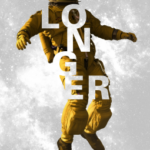
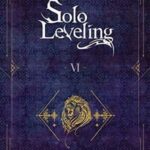

I’m not sure what I’ll be reading this weekend and into the new week (which is also a week off for me), but it’ll probably include reading more of T. Kingfisher’s Snake-eater, which I started this week. I have a lot to do if I want to get a blackout in the BookSpinBingo challenge this month, so maybe more of those books?
But, as always… it’ll be down to my whim in the moment. Nothing’s as important as making sure I do actually enjoy what I’m reading, or at least the process. (I’ll sometimes finish books that I don’t like per se because there’s some interest in doing so, even if it’s just to write a good review to diss ’em.)
Linking up with Reading Reality’s Stacking the Shelves, Caffeinated Reviewer’s The Sunday Post, the Sunday Salon over at Readerbuzz, and It’s Monday! What Are You Reading? at The Book Date.











